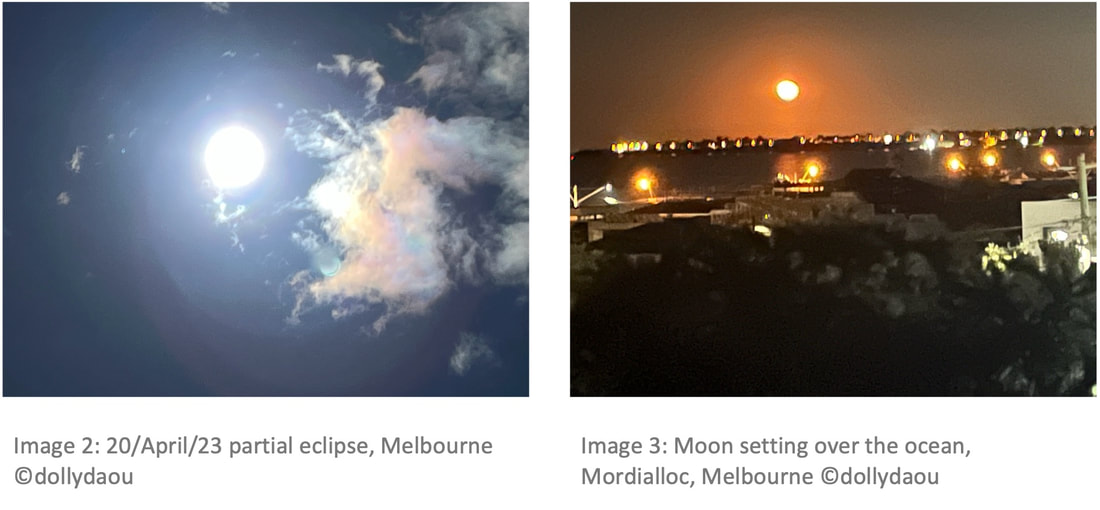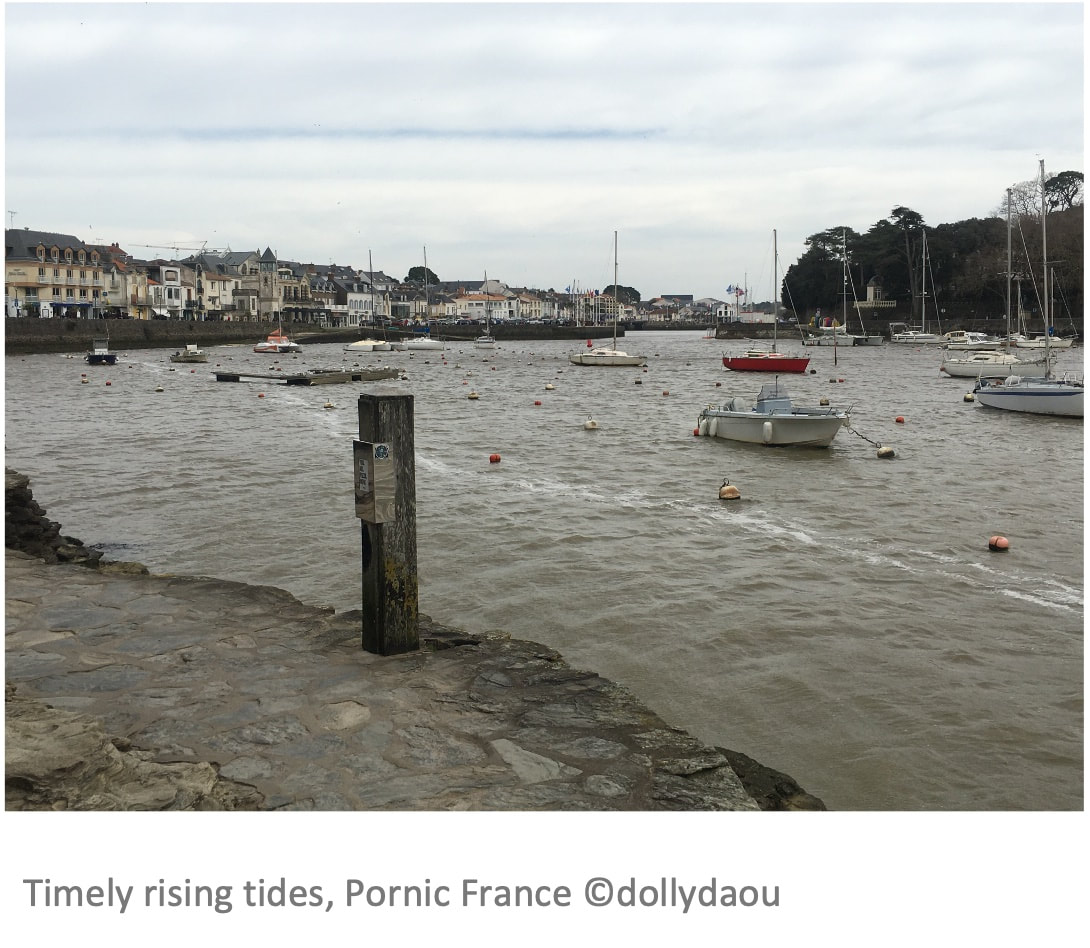Author: Dr Dolly DaouInternational expert in design business innovation and strategies - International experience in design pedagogy/research, leading philanthropic associations and higher education programs and community projects in Australia, Asia, Europe and in the Middle East. (Visit: https://dollydaou.org/) I was inspired to write this blog in response to a post I saw on social media, where during an interview, one of the attendants asked: Who invented gravity and why do we need it? To the best of the attendant’s knowledge gravity was invented by Isaac Newton. These simple yet complex questions demonstrate the fragility of our knowledge and appreciation of gravity and reveal the inter-connection of these questions to each other. To be clear the reflections on gravity in this blog are not scientific, rather I am exploring the significance of gravity in our everyday as a design researcher. Throughout history the chain reaction of scientific explorations by Aristotle, to Bruno, Galileo, Kepler, Newton, much later Einstein, and then Hawking led to the discovery and adaptation of the theory of gravity. Although Newton could not explain the origin of gravity he did adapt Johannes Kepler’s law of gravitational theory, invented calculus and gave this force its name: gravity. Through this exploration, I open the scope of discussion for other disciplines to examine the power of this invisible force in our universe. Through interior and food design I demonstrate how gravity controls our daily lives from lifting an ordinary object to launching a rocket into space or designing a sustainable food system. We rely on gravitational forces of the planets during our interaction with our environment, especially in the food system gravity plays an integral part in the production, distribution, manufacturing and consumption of food. The images below of the Chinese mountains and Australian ocean show how the food system on our planet Earth is connected through a force that holds everything together called: gravity. If we understand gravity, we understand the story of creation of the universe, that grounds the human existence and conditions our neurology and physiology. We under-estimated the value of gravity in our everyday, which usually goes un-noticed. The complexity of questioning the origin and benefits of gravity lies in the simplicity of these questions; in the presumption that we should all know the answers. These questions are especially relevant now during our current exploration to the extra-terrestrial inhabitation with lower or zero-gravity environments, which reveal the significance of gravity as a un-negotiable part of our everyday life. The force of the universe Who invented gravity? For terrestrial beings, gravity came with our universe, and with the planet Earth as a package, buy one get one free. So why do we need gravity? We need gravity for our survival. Gravity has always been there but it was the movement of the planets that offered the opportunity to discover the theoretical law of the universe by Aristotle, which led centuries later to the discovery of the theory of gravity by Isaac Newton in 1665 and its further development by Einstein’s theory of relativity. Gravity is the force that is holding the entire universe together and ensures that our universe with its solar systems, galaxies, stars and beings move with such precision to ensure a cosmic balance and harmony. This force grounds us on and into our lives and in our reality, physically, emotionally and spiritually. Our relationship with gravity is paradoxical, we need gravity for our existence, however since birth we try to defy gravity and we learn to stand up as children despite the resistance. We build planes and rockets to fly, but we are fearful and hopeful of gravity when it pulls back down to earth. As we move away from gravity we look forward to feeling the ground under our feet again. From tides to flights Gravity is responsible for the circle of life that we experience in a three spatial dimensions from the inception of the universe until its unpredictable or maybe predictable end. Will we ever live without gravity in the extra-terrestrial spaces, will we ever adapt? Gravity is the background power, that obeys scientific laws that influence the entire universe and its beings with all its micro and macro components, the visible and the invisible, the tangible and intangible. Gravitational forces are taking place constantly and consistently without us even noticing their presence, but they sure make our lives easier and sometimes harder on this planet and on other planets. As terrestrial beings, the gravitational forces of the universe play a major role in defining our identities by influencing the environmental systems and the processes of the circle of life. For example, the images above were taken in different continents, they are inter-connected by the same laws of gravity even though gravity is not the same everywhere on Earth. These gravitational laws influence the movement of the tides, and keep earth at a safe distance from the sun, enough to benefit from its warmth for the survival of the entire ecosystem of our food chain and of the terrestrial atmospheric qualities, which includes: earth, air, fire and water. A living example is the ocean tidal waves are influenced by the gravitational pull and push between the earth and the moon, which in turn influence the flow of water resources and the quality of the soil and plants, which relies on the sunlights for the survival of all beings. As shown in the above images in the ocean water levels in Pornic. The low and high tides is known in the region as a phenomenon, however it is the influence of gravity on the ocean tides, where “The rise and fall of ocean water levels are created by the gravitational pull of the Moon as it orbits Earth.” Why do we need gravity? Let us imagine what life would be like without gravity and actually we do not need to imagine this since zero gravity environment is becoming a reality in the near future when we inhabit extraterrestrial spaces. How would we build and enjoy our cities? (See also Mars, Inhabiting the Red Planet). On Earth, due to gravity we take it for granted that we are living in a world of stability. Our feet are planted firmly on the ground, we do not float in mid-air. Our buildings are firmly built on solid grounds to ensure that the building mass remains connected to the ground. We can voluntarily move our limbs upon the automative request of our mind; we plan these movements and know when, where and how they start and finish. The position of our body and objects are predictable and movement can be calculated with Einstein’s famous equation: energy (E) equals mass (m) times the speed of light (c) squared, or E=mc2. When we pick up objects we control their destination, our mind is not used to seeing objects floating in mid-air but rather grounded firmly through an invisible force called gravity. When we sleep we wake up still on the bed and not floating somewhere in space, even brushing our teeth, washing our faces, showering, bathing, walking, talking, breathing. Due to gravity we perform effortlessly these daily activities without thinking; gravity conditioned our mind to get used to this invisible force. We build our cities, spaces and activities according to these laws that influence our lives. The above images reveal the forces of gravity to perform different micro or macro tasks; from building our cities to enjoying a cup of coffee on a side walk. The mass of the Haussmann buildings in Paris are connected to the ground, imagine this city without gravity, what would hold the mass of our daily habits or events together? For example, think of the multiple steps that it took to perform this captured moment from the act of sitting, making a cup of coffee, to bringing the cup to the table, to placing the cup on the table, paying, walking away. This process is based on trust; we trust that we can perform these activities sometimes on auto-pilot. We trust that the cup of coffee, the table, the chairs, signs, objects, cars, roads and people will remain grounded by gravity throughout the experience. This is the power of gravity, it is there influencing our every move running in the background on auto-pilot. A drop in the ocean of the universe We all agree that Isaac Newton did not invent gravity but rather formulated the theory of gravity and motion, according to the popular story after observing an object fall vertically down on the floor. To this day Newton’s theory is valid. Since we are terrestrial beings, we now know that we build our lives around a force known as: gravity. Maybe if we were born on Mars it would have been a different story, how would our physiology and our lifestyle be. Aristotle’s curiosity to study the night sky led centuries later to Newton’s invention of the theory of gravity in 1665-1666. To continue to ask "who invented gravity?” and "why do we need it?" is to continuously remind humanity to explore the mysteries of the origin of our universe, which is our origin. As a designer, new scientific discoveries of the forces continue to shape our existence and our design ethos. Inspired by these questions I continue to look up at the canopy surrounding our planet Earth to understand how over the centuries the movements of these planets in our universe reached us at this moment, right now to influence everything we do and we are through gravity, as written by Paul Presuss: “Whole other universes may be within your grasp. Even if you cannot see these distant places and other worlds, you may be in communication with them through that most familiar of forces, gravity.” We are part of this vast universe, where our planet is only a drop in the ocean and so are we, however, it is gravity that connects us together. Through gravity, the blue shaded canopy we call sky with all its planets, suns, moons, stars directly influence our lives and our existence. Our lives on this Earth is but a replica of the larger and vast boundless space we call the universe. This blog is promoted and supported by the:
Comments are closed.
|
Welcometo the InnovaSpace Knowledge Station Categories
All
|
UK Office: 88 Tideslea Path, London, SE280LZ
Privacy Policy I Terms & Conditions
© 2024 InnovaSpace, All Rights Reserved








 RSS Feed
RSS Feed